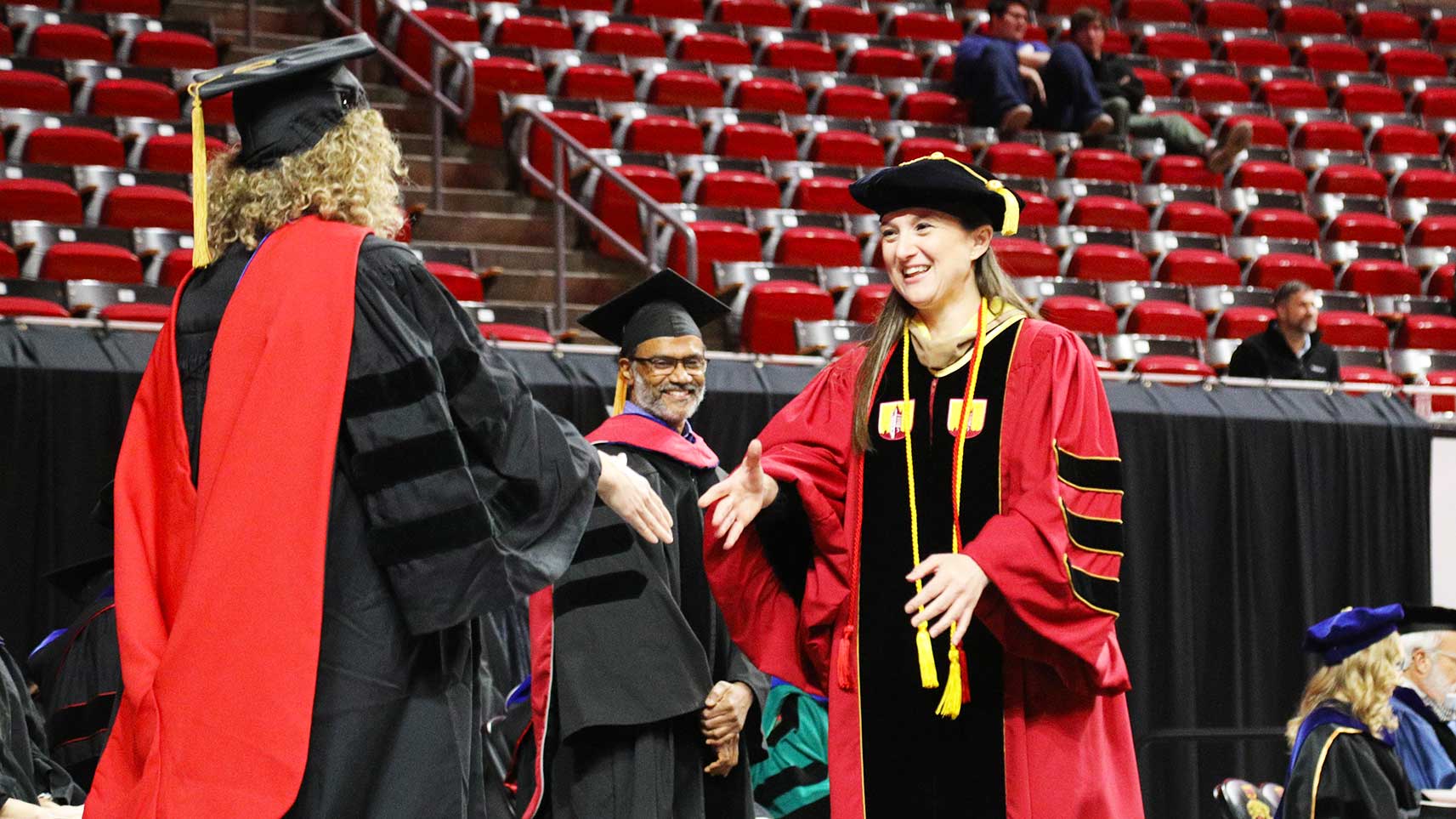The Ivy College of Business uses the application process below. Typical program duration is five years and applications are due by January 15*. Apply early as it takes three to four weeks for the Office of Admissions to process applications. Individual faculty cannot directly admit students. Area Committees make recommendations, and the Department Committee makes the final decisions.
Application requirements
- Online application. Please select Business and Technology as your major in the online application.
- Statement of purpose.
- Resume or curriculum vitae.
- College transcripts.
- Three letters of recommendation.
- A writing example is strongly encouraged.
- GMAT (preferred)/GRE is required for all students.
- GMAT minimum:
- GMAT Exam: 600.
- GMAT Focus Edition: 565.
- GRE minimum: 315.
- GMAT (school code TNQ-WX-02) or GRE (school code 6306).
- English exam for international students.
- TOEFL: 600 paper (PBT).
- 100 Internet (iBT).
- IELTS: 7.
- Duolingo: 130.
- PTE: 68.
Application deadline
Fall semester: January 15 (*Finance admits odd fall semesters only).
Format and length
Residential; typical program duration is five years.
Location
Ames, Iowa
Unofficial records may be scanned and uploaded to your online application. An unofficial transcript is a copy of the front and back of an official transcript
You will be notified via email of admission decisions typically by the end of March.
Should you be offered admission, official transcripts sent directly from your institution(s) will be required. Transcripts can be mailed directly to:
Graduate Admissions
100 Enrollment Services Center
2433 Union Drive
Ames, IA 50011-2042
Electronic transcripts can be sent to etranscript@iastate.edu.
For questions about the application process, contact us at businessphd@iastate.edu.



